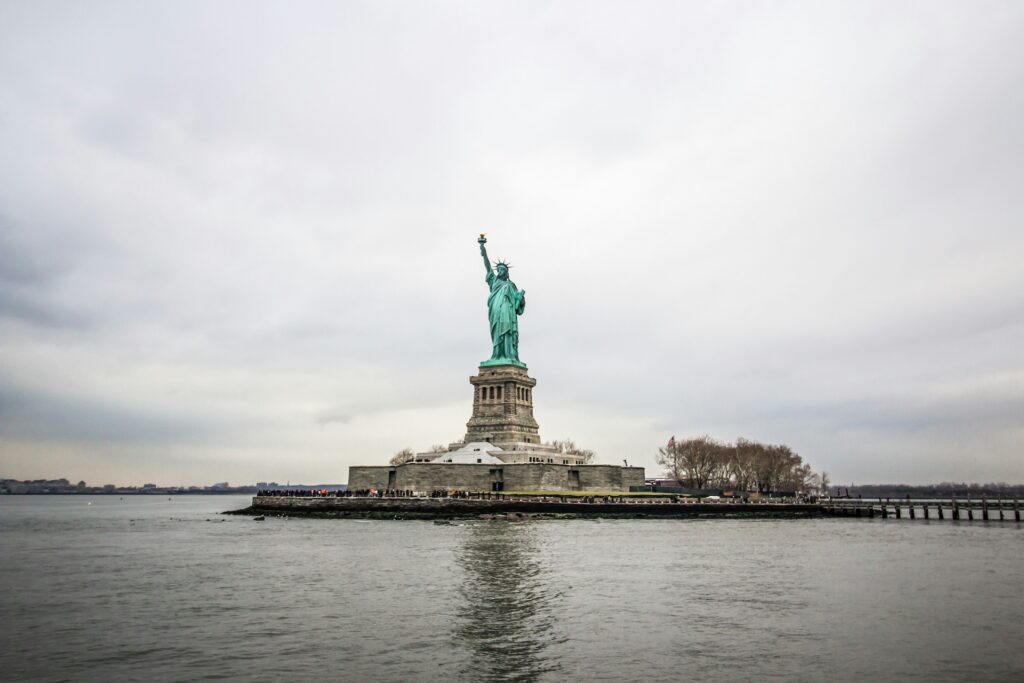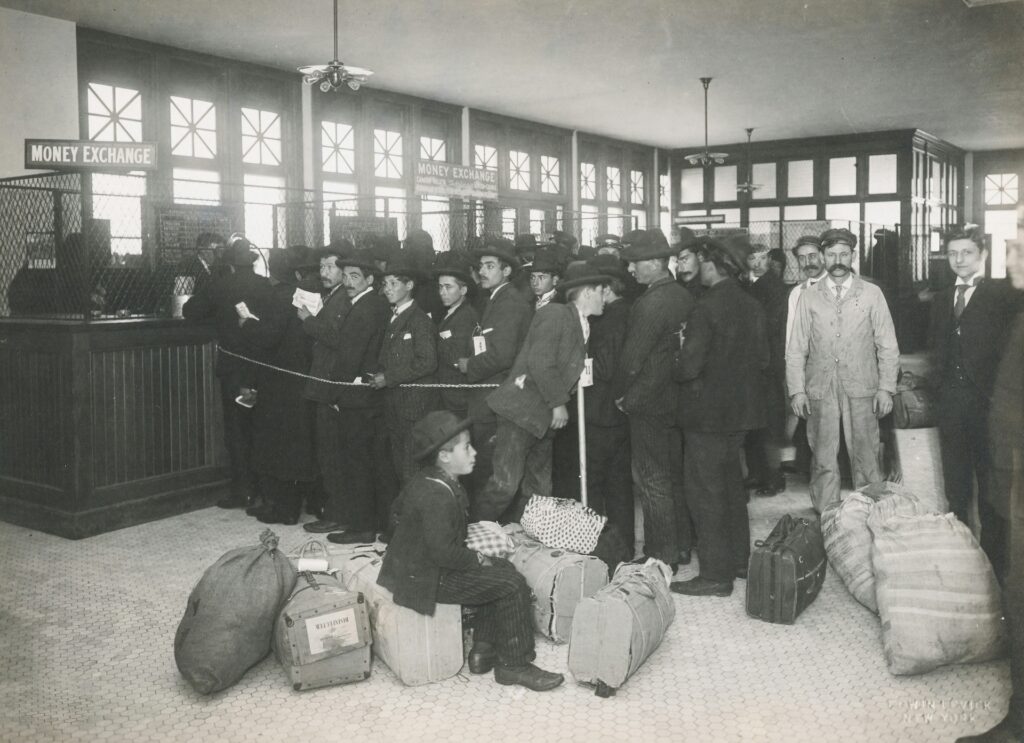The Critical Importance Of Celebrating The Indomitable Immigrant Spirit
There’s a line from Leviticus that Jews repeat each year at Passover: “The stranger who resides with you shall be to you as one of your citizens; you shall love him as yourself, for you were strangers in the land of Egypt.”
Whatever your position on the current immigrant crisis, these words are a humbling reminder of something that has been all but lost amid the often dysfunctional policy debates: The vast majority of us were once strangers in this land. We are a country of immigrants. And that is worth celebrating.
This was made movingly clear to me last week while visiting Ellis Island and the Statue of Liberty in New York City with my eleven-year-old son, Ian.
Nothing But a Dream
From 1892 to 1954, around twelve million immigrants passed through Ellis Island, including my paternal grandfather and Ian’s great grandfather after whom he is named: Yakov Kaufman. A fourteen-year-old Jewish boy from Krakow, Poland, Yakov disembarked in 1906 at the three-story brick government building on the island with no parents, no money, and nothing but a dream.
The first thing Yakov would have seen upon entering the New York Harbor is the iconic Statue of Liberty. The monument still manages to stir deep emotion, especially when viewed from the perspective of those millions like my grandfather whose family invested their meager life savings and large hopes in Yakov’s cross-Atlantic journey to a better life.
What was Yakov thinking when he looked up at the green, weather-hewn copper lady holding the torch high in the harbor? Did he notice, as Ian immediately did last week, that her expression is not one of wide-eyed jubilation, but pursed-lipped determination? Did he observe the Lady’s right foot lifted mid-stride from under her robe, an intentional detail by French sculptor Frédéric Auguste Bartholdi suggesting that the promise America represents would require constant movement and work?
The Elusive Ideal
Yakov knew full well that success was never guaranteed if he managed to survive the journey, which many did not. There was even a chance he could be among those sent back home from Ellis Island should he fail the litany of background checks, legal hearings, and rigorous medical and intelligence tests administered in the government processing office.
I myself attempted one of those intelligence tests they have on display for tourists—making a perfect square out of odd-shaped puzzle pieces—and failed miserably. How a fourteen-year-old boy had the presence of mind to pass that test with his entire future hanging in the balance is one of the mysteries of the indomitable immigrant spirit.
Growing up in autocratic Poland, Yakov must have known deep down that the freedom he sought was not some final destination but an ever-elusive ideal for which he would have to incessantly toil.
Yakov’s great-grandson has had to learn that same lesson in 2024 for sadly different reasons. Ian now lives in a country adrift, a country without a clear moral compass or unifying ideal. Many now express contempt for immigrants. The future of the American democracy Yakov helped build is anything but certain.
If Yakov’s dream is to survive, Ian’s generation has a lot of work ahead of them to repair our broken democracy.
The Indomitable Immigrant Spirit
In the early nineteen hundreds, when Yakov was building his American dream, he had little time for self-doubt and doubts about the country he called home. Never finding the time to finish school, he had only a fourth-grade education and knew just enough English to eke out a living as a newspaper salesman, then as a factory worker in the automobile industry, and then as a carpenter and plumber.
In 1916, he parlayed his $200 savings and carpentry skills into co-founding what would become a successful store fixture manufacturing business that would support his children, grandchildren, and great-grandchildren for the next century.
That I have been able to dedicate my life to the study of Russian literature—a luxury Yakov never could have imagined for himself—is because of the sacrifices he made.
Where We Came From, Where We’re Going
There is much worth debating about today’s immigration policy. Both sides of the political spectrum have legitimate concerns, even if their way of voicing them or, in some cases, playing politics with human lives is appalling.
At the same time, we must acknowledge the enormous suffering felt by the often brutally displaced Native Americans who were here long before any of us. Their sadness, too, is real.
Can we feel that pain while putting aside political differences and also celebrating the courage of those millions of immigrants who risked and continue to risk everything for a better life?
On the ferry ride back from Ellis Island, I told Ian I loved him and gave him a long hug, my eyes watering and heart heavy.
“Why are you crying, Dad?” he asked.
“Because we have so much to be grateful for,” I said. And—though I didn’t say it out loud at the time—also because I know that he and his generation have much difficult work ahead.
***
Connect with Dr. Kaufman on Amazon, Twitter, Facebook, his private FB Group, Linked In, Instagram, Goodreads, and YouTube, and sign up for his newsletter here.
Follow Books Behind Bars on Twitter and Facebook.
Order The Gambler Wife: A True Story of Love, Risk, and the Woman Who Saved Dostoyevsky
A PEN/America finalist, now optioned for film!



Beautifully written. So true. And worrisome for future generations.
Thanks Glenn. What certain leaders in our country don’t understand is that they are not just playing politics, they are playing with the very heart and soul of our country. Their egoism and lack of historical perspective are astonishing. The younger generation deserves better.
I heard an interesting statistic recently that said during covid the unemployment figures in the US rose significantly because Mexican migrants weren’t there to fill the jobs US citizens wouldn’t take. This has now reversed, and has helped balance out the average wage and in doing so helped the economy and created better employment figures.
Another benefit from immigration rarely heard in all the rhetoric.
Thank you for sharing that unusual statistic. I am sickened by the demonization of immigrants we have been hearing from the RNC. Some are bad apples, but most are here to work hard and play by the rules.